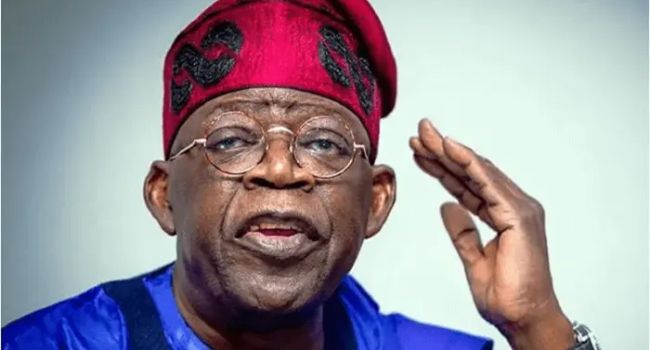
President Bola Tinubu has written to the National Assembly, seeking approval of a fresh N1.767tn as a new external borrowing plan in the 2024 appropriation act.
If approved, the loan will be used to part-finance the budget deficit of N9.7tn for the 2024 budget.
The president’s request was contained in a letter written to both Senate President Godswill Akpabio and Speaker of the House of Representatives Tajudeen Abbas, which was read separately by the presiding officers during plenary in both chambers on Tuesday.
President Tinubu has also forwarded the Medium Term Expenditure Framework and Fiscal Strategy Paper (MTEF/FSP) 2025-2027 to the National Assembly and the National Social Investment Programme Establishment Amendment Bill, to make the social register the primary tool for the implementation of the federal government’s social welfare programmes.
This is as the Central Bank of Nigeria recently said the Federal Government spent $3.58 billion servicing the country’s foreign debt in the first nine months of 2024.
Data sourced from the Central Bank of Nigeria’s (CBN) report on international payment statistics showed that the amount represents a 39.77 percent increase from the $2.56 billion spent during the same period in 2023.
According to the report, while the highest monthly debt servicing payment in 2024 occurred in May, amounting to $854.37m, the highest monthly expenditure in 2023 was $641.70m, recorded in July.
The trend in international debt servicing by the CBN highlights the rising cost of debt obligations by Nigeria.
Further breakdown of international debt figures showed that in January 2024, debt servicing costs surged by 398.89 percent, rising to $560.52 million from $112.35 million in January 2023. February, however, saw a slight decline of 1.84 percent, with payments reducing from $288.54 million in 2023 to $283.22 million in 2024.
Recall that the federal government had last Thursday approved a $2.2 billion external borrowing plan to strengthen the country’s finances and support economic reforms.
Minister of Finance, Wale Edun, disclosed this to State House correspondents after the federal executive council (FEC) meeting presided over by President Bola Tinubu at the Presidential Villa last week.
According to him, the financing package will be raised through a combination of Eurobonds and Sukuk bonds, with approximately $1.7 billion expected to come from the Eurobond offer and $500 million from Sukuk financing.
He said the move was aimed at completing the federal government’s borrowing programme and will proceed once the National Assembly reviews and approves the plan.
Edun said the borrowing will take place within the 2024 fiscal year, with the final structure of the funding to be determined by market conditions and the recommendations of transaction advisers.
He said, “The first objective is to complete the federal government’s external borrowing program with the approval of the $2.2 billion financing package, which will include access to the international capital market through a combination of Eurobonds and Sukuk bonds—approximately $1.7 billion from the Eurobond offer and $500 million from Sukuk financing.
“The actual composition of the financing will be finalized once the National Assembly has considered and approved the borrowing plan. After the external borrowing approval is granted, the funds will be raised as soon as possible within the year.
“The exact combination of instruments will depend on the advice of transaction advisers and market conditions when we decide to enter the market.
“Earlier in the year, we demonstrated the resilience of the Nigerian financial markets and their capacity to handle more complex and sophisticated offerings, such as the domestic issuance of dollar bonds that attracted investors from both Nigeria and abroad.”
Edun underscored the importance of the approval as a sign of growing confidence in Nigeria’s economic recovery under President Bola Tinubu’s administration.
He highlighted the resilience of the Nigerian financial market, citing recent successes in domestic dollar bond issuances that attracted both local and international investors.
He further explained that the government’s economic program, which includes market-based pricing for key economic variables like petroleum products and foreign exchange, has paved the way for this latest international borrowing.





